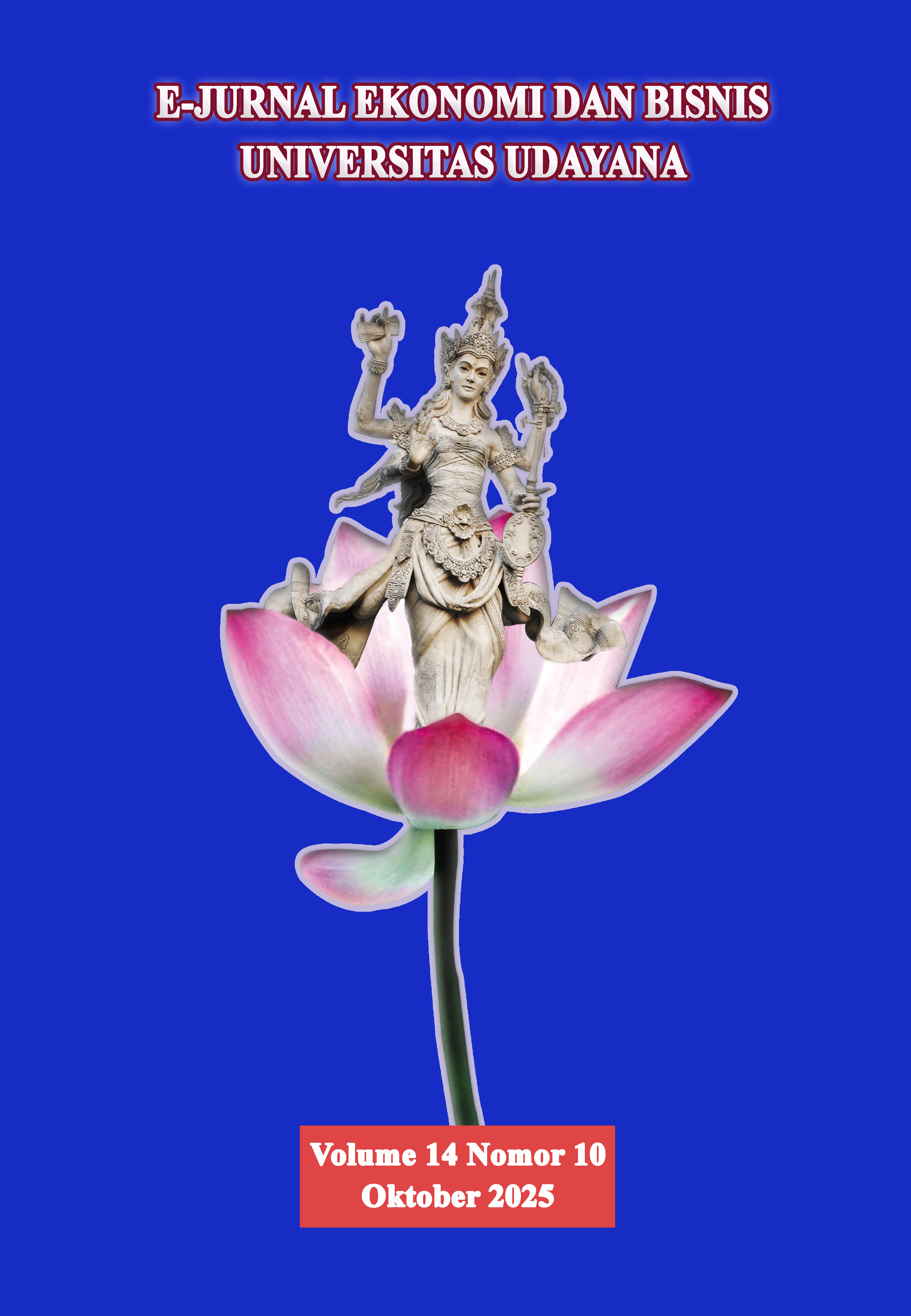FINANCIAL STATEMENT FRAUD DALAM PERSPEKTIF FRAUD HEXAGON PADA PERUSAHAAN SEKTOR TRANSPORTASI DAN LOGISTIK DI BEI
DOI:
https://doi.org/10.24843/EEB.2025.v14.i10.p01Keywords:
Financial Statement Fraud, Fraud Hexagon Theory, F-Score, Kecurangan Laporan Keuangan, Teori Fraud HexagonAbstract
Penelitian ini bertujuan untuk mengkaji secara empiris pengaruh pressure, rationalization, opportunity, capability, ego, dan collusion pada financial statement fraud. Sampel pada penelitian ini adalah perusahaan sektor transportasi dan logistik yang terdaftar di BEI pada periode 2020-2023. Metode penentuan sampel dalam penelitian ini adalah non-probability sampling dan adapun teknik penarikan sampel adalah purposive sampling, dengan 104 observasi. Analisis data penelitian menggunakan analisis regresi linier berganda. Berdasarkan hasil analisis dapat diperoleh simpulan bahwa rationalization berpengaruh positif pada financial statement fraud, sedangkan pressure, opportunity, capability, ego, serta collusion tidak berpengaruh pada financial statement fraud. Penelitian ini memberikan bukti secara empiris mengenai teori fraud hexagon dalam mengidentifikasi faktor-faktor yang mempengaruhi seseorang dalam melakukan tindakan fraud, terutama financial statement fraud. Implikasi dari penelitian ini adalah peningkatan strategi pengawasan internal untuk perusahaan sektor transportasi dan logistik sehingga dapat mengambil langkah-langkah preventif yang tepat dan efektif dalam mencegah tindakan fraud.
This study aims to examine empirically the effect of pressure, rationalization, opportunity, capability, ego, and collusion on financial statement fraud. The sample in this study is transportation and logistic sector companies listed on the Indonesia Stock Exchange in 2020-2023. The method of determining the sample in this study is non-probability sampling with sampling techniques using purposive sampling, with a total sample of 26 companies with 104 observations. Data analysis using multiple linear regression analysis. The research findings indicate that rationalization has a positive effect on financial statement fraud, pressure has no effect on financial statement fraud, opportunity has no effect on financial statement fraud, capability has no effect on financial statement fraud, ego has no effect on financial statement fraud, and collusion has no effect on financial statement fraud. This research provides empirical evidence regarding the fraud hexagon theory in identifying factors that influence a person in committing fraud, especially financial statement fraud. The implication of this research is an increase in internal control strategies for transportation and logistics sector companies so that they can take appropriate and effective preventive measures in preventing fraud.
Downloads
Published
Issue
Section
License
Copyright (c) 2025 Putu Melia Utami Putri, Ni Made Dwi Ratnadi, I Ketut Suryanawa, Ni Ketut Rasmini (Author)

This work is licensed under a Creative Commons Attribution 4.0 International License.














